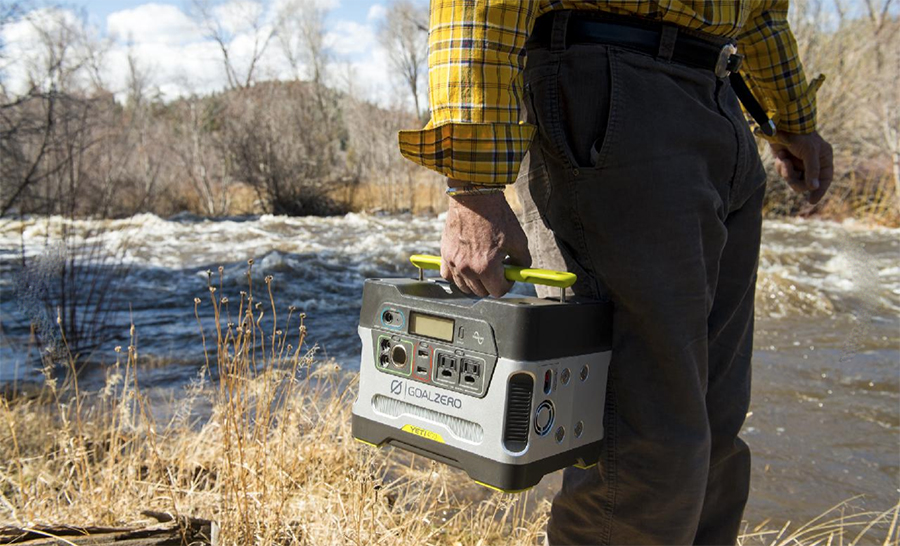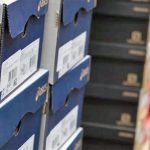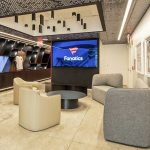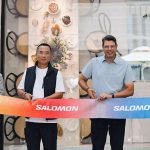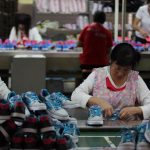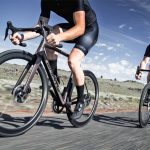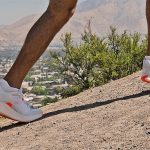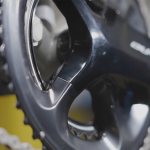By Eric Smith
March 2020 will go down as a month to forget for most outdoor brands.
As the coronavirus (COVID-19) spread across the U.S., it shuttered brick & mortar retailers and sparked massive layoffs, forcing many Americans to stay home and focus discretionary spending only on necessities. The unprecedented crisis has led to economic woes such as rising unemployment and plummeting consumer confidence, though the long-term toll it takes on the outdoor industry is still unfolding.
Bill Harmon, general manager of Salt Lake City, UT-based Goal Zero LLC, has heard firsthand about the issues that his colleagues at other outdoor brands are facing. But when they, in turn, ask Harmon to share how the coronavirus has impacted his business, he has a different response.
Goal Zero, which sells portable solar panels, power stations, rechargers, lights and speakers for emergency, off-grid, outdoor and everyday scenarios, has seen sales soar from the same month last year, Harmon told SGB Executive.
Its March total crushed previous revenue records—all because of growing fears over the coronavirus and Goal Zero’s ability to give consumers peace of mind.
“We’ve never had such a good month in our history,” he said. “Our call center cannot keep up with the influx of calls that are coming in. It just highlights how different things can be depending on what your product or service is.”
Tapping Into Prepping Trend
Such success amid the craziness of the coronavirus is rare as unemployment climbs and the economy slows, although a few categories have emerged as so-called “winners” during the pandemic. SGB Executive recently outlined a few that stand to benefit from the current crisis, including firearms and ammunition manufacturers and at-home fitness companies.
Beyond the active-lifestyle market, there’s the obvious beneficiary list of grocery stores, food delivery providers, teleconferencing software companies and streaming services, but categories in this space seeing a sales bump include freeze-dried food, propane stoves, water purification and portable power.
These products have been somewhat insulated from the sales cliff down which many categories have tumbled—and for a clear reason. They double as survival gear, and the concept of prepping is heightened whenever people panic over the availability of food, water and power.
It’s why “essential” businesses like Sportsman’s Warehouse Holdings Inc. have found a niche selling certain items during the coronavirus.
“We have certainly experienced unusually high demand for many of our products, including generators, dehydrated food, water filtration, propane, first aid supplies, firearms and ammunition,” Sportsman’s Warehouse CFO Robert Julian said last week. “Most of our stores remain open at this time so that we can provide our customers access to these essential items.”
Goal Zero, which is owned by publicly traded NRG Energy Inc. (the company doesn’t break out revenue figures for the brand), has been viewed by many as an essential product since its launch more than 10 years ago when founder Robert Workman embarked on a humanitarian mission in the Democratic Republic of the Congo.
The company was born of his efforts to help the Congolese by providing power stations, solar panels and lights to—quite literally—brighten the lives of people who previously didn’t have access to them.
“Shortly after that, we realized there was an application for these products in the outdoor recreation community, so now we’re powering Everest base camp and many people’s personal campsites,” Harmon said. “But we also help with emergency preparation and disaster response.”
Goal Zero has indeed zeroed in on providing power where there is none, including in the aftermath of natural disasters such as hurricanes in the Northeast, Southeast and Gulf Coast. And now, of course, the coronavirus, which has not been limited to one region and has sparked fears of similar utility outages.
“While we’re a little surprised to see sales spiking like they are as it relates to COVID-19, it is just another chapter in kind of our history of helping people when the power’s out,” Harmon said.
Coping With Supply Chain Challenges
Goal Zero’s portable power products have been flying off what few store shelves are still open, but fulfillment is now mostly coming from their retail partners’ e-commerce sites (such as REI) or the company’s distribution center through its direct-to-consumer channel.
The surge in demand has caused some headaches for Harmon and his team, especially as many of them work from home. But in today’s rapidly decelerating sales environment, these are good problems to have, he admitted.
“Our biggest challenge now is becoming a question of inventory,” Harmon said. “When are we going to sell out of inventory of our key items, which are our power stations? How do we mitigate that? How do we work through that? How do we accelerate getting inventory to continue serving customers that are looking for our products?”
Due to the sales boost this month, Goal Zero is running short on inventory, primarily because of a snarled supply chain out of China that delayed the production and shipment of new product. But the fact that Goal Zero was ready for the coronavirus outbreak with plenty of product in stock during its advent in March speaks to the company’s efforts to beef up supply during last fall.
When utility companies in California began shutting down the power grids to help prevent the spread of wildfire, residents sought ways to keep the lights on and their phones charged. Goal Zero had seen an opportunity and was ready for the skyrocketing demand.
“The issues in California led us to change our philosophy as to how we stock inventory,” Harmon said. “We used to stock up when we’d head into hurricane season or ice storm season. We finally got smart enough to realize that we can’t predict when these things will happen. We don’t know what the next thing will be, so we started choosing certain products that help people the most during these circumstances. That has served us well. With the California power issues last fall, we made a deliberate decision to go long on inventory. That’s helped us weather this period of time where China slowed down.”
Harmon, talks with Goal Zero’s manufacturing partners in China daily, said manufacturing is slowly getting back up to speed, and the first new shipment of product since Chinese New Year “hit the water” about 10 days ago. But as the supply chain issues get resolved, Harmon still expects a “rough month” in April due to supply shortage.
Once normalcy resumes, both with the supply chain and with retailers reopening, the company expects demand to be somewhat tempered, although Goal Zero is projecting sales to steadily rise for a simple reason that the coronavirus has uncovered.
“Over the last year, we’ve seen a sensitivity that the American public has to being prepared,” Harmon said. “Whether that’s a power outage in California or a hurricane on the coast, there’s just a different sensitivity level than we’ve ever experienced to being prepared and power being something that we’re just growing more and more dependent on. Regardless of when this particular pandemic comes to a close, we’re seeing people far more sensitized to this. It’s impacting our sales all the time.”
Goal Zero is focused on ensuring the safety of its employees, of course, while also aligning supply with demand, but the company is also looking to leverage the success of the past month into market share gains for the remainder of 2020 and beyond.
After all, there’s talk of the coronavirus returning next fall and winter, and there’s always the chance of power outages or more natural disasters. When they do, Goal Zero now has the blueprint to be ready.
“We’re getting the word out with a pretty large marketing campaign,” Harmon said. “It will be the largest campaign Goal Zero has ever been involved with as we increase awareness in California coming up this summer leading into the next power outage time. I think the combination of people being sensitized to the need for power during a crisis, as well as what’s happening in California, it’s gone a long way to grow our business.”
Photo courtesy Goal Zero

